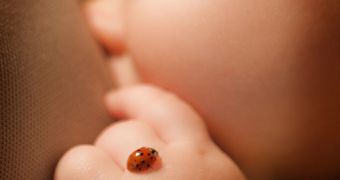Two new studies concluded that vitamin A and beta-carotene supplements are dangerous for HIV-positive women who breastfeed, because they can stimulate the excretion of HIV in breast milk, and increase the risk of transmitting the infection to the infant.
Eduardo Villamor, an epidemiologist at the University of Michigan School of Public Health, said that the transmission of the virus is due to the viral particles from breast milk ingested by the baby, and that vitamin A and beta-carotene supplements increase the amount of the virus within the breast milk.
He adds that another cause might be that the same nutrients increase the risk of developing subclinical mastitis, which is an inflammatory condition that causes blood plasma to leak into the mammary gland and then the viral particles leak into the milk.
For one of the studies, the 1,078 HIV-infected women were divided into four groups.
To the test groups were administrated 5,000 IU of vitamin A and 30 mg of beta-carotene everyday during pregnancy and the lactation period, or simply a control regimen.
Villamor said that the dose for beta-carotene was higher than the amount usually provided by the diet, as smaller doses might not have had the same effect.
He added that the tests that attempted to separate separate the effects of each nutrient showed that beta-carotene seemed to rise the amount of HIV in breast milk independent of vitamin A, but scientists did not rule out an effect of vitamin A alone.
These findings could raise a controversy as vitamin A is very important for postpartum women in countries with high HIV infection rates.
“So there are now strong arguments to consider the implications of supplementation to pregnant or lactating women who are HIV-positive, [as] it does not look like it's a safe intervention for them,” said Villamor, associate professor of epidemiology and environmental health sciences.
He added that mother-to-child HIV transmission is a big problem in developing countries with a high HIV infection rate, and in 2008 alone, there were 430,000 new infections and over 95% of them resulted from mother-to-child transmission, mostly in sub-Saharan Africa.
“The takeaway is that daily supplementation of HIV-infected pregnant or lactating women with vitamin A and beta-carotene at the doses tested is probably not safe and efforts need to be strengthened on preventing mother-to-child transmission through other interventions such as anti-retroviral regimens,” said Villamor.
The results of the study were published in two articles in the American Journal of Clinical Nutrition and the Journal of Nutrition.

 14 DAY TRIAL //
14 DAY TRIAL //